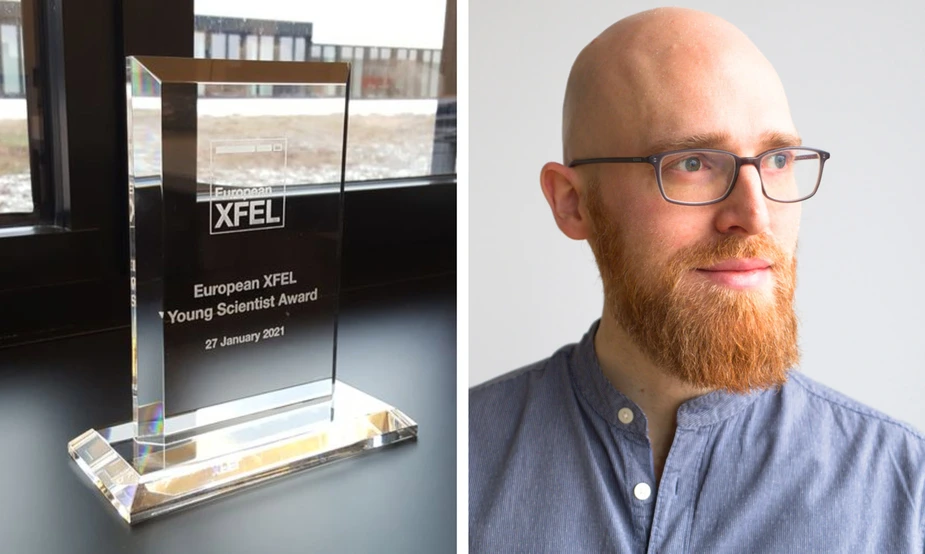Dr. Michael Schneider receives the European XFEL Young Scientist Award
MBI researcher was awarded for his important contributions in three distinct areas pertaining to diffraction experiments with soft x-rays at European XFEL
X-ray pulses delivered by x-ray free-electron lasers are typically focused to a few-micrometer size in order to achieve extreme x-ray intensities at the sample inside the scientific instrument. In his PhD work, Michael Schneider developed an approach to monitor the beam footprint on a solid transmission sample in a diffraction experiment. In essence, along with the diffraction pattern from a sample of interest captured on a 2D detector, his approach allows to simultaneously record an image of the spatial intensity distribution of an x-ray pulse on the sample giving rise to that particular diffraction pattern. This approach allows quantitative studies of effects arising at very high x-ray intensities in diffraction experiments. As an easy to use stand-alone tool, his “curved grating monitor” approach is now routinely used to image and optimize the focal spot at soft x-ray beamlines at various synchrotron radiation sources and free electron lasers world-wide, including the Spectroscopy and Coherent Scattering (SCS) instrument at European XFEL.
With the advent of a new generation of pixelated x-ray detectors, large diffraction patterns can be recorded with unprecedented speed, opening new possibilities for research. At European XFEL, the DSSC Detector allows to record diffraction patterns with soft x-rays, generating a peak data stream of about 17 GB per second. In early science beamtimes at European XFEL just after the arrival of the DSSC detector at the SCS instrument, Michael Schneider worked together with the XFEL data group to develop a software toolkit enabling on-the-fly filtering, sorting and inspection of the DSSC scattering data. The toolkit allows researchers to quickly extract the scientifically relevant information out of the huge data stream and steer their experiments accordingly, allowing for efficient use of beamtime. Participating in several European XFEL beamtimes, Schneider used his physics insight to adapt his toolkit to the different needs of the respective experiments. The award committee recognized Michael Schneider’s contribution to enable early science with the DSSC detector and his community spirit of making the software package publicly available – the toolkit is now integrated into the SCS analysis software package.
Along the lines of his own scientific agenda, Schneider was part of a team lead by Max Born Institute (MBI), Berlin, Germany, and the Massachusetts Institute of Technology (MIT) investigating how magnetic textures in thin films can be generated with ultrashort infrared laser pulses. Specifically, resonant diffraction experiments were performed using the DSSC detector at SCS in order to understand how the topology of the magnetic structures is changed in the process. In concert with theory, the pump-probe diffraction experiments at SCS were key to probe the dynamics of the process, allowing to unravel the topology-changing mechanism as reported in a publication in Nature Materials in 2020.
Contact
Max Born Institute for Nonlinear Optics and Short Pulse Spectroscopy
Dr. Michael Schneider
Phone +49 30 6392-1343
Email michael.schneider(at)mbi-berlin.de
www.mbi-berlin.de
Press release MBI, 29 January 2021
